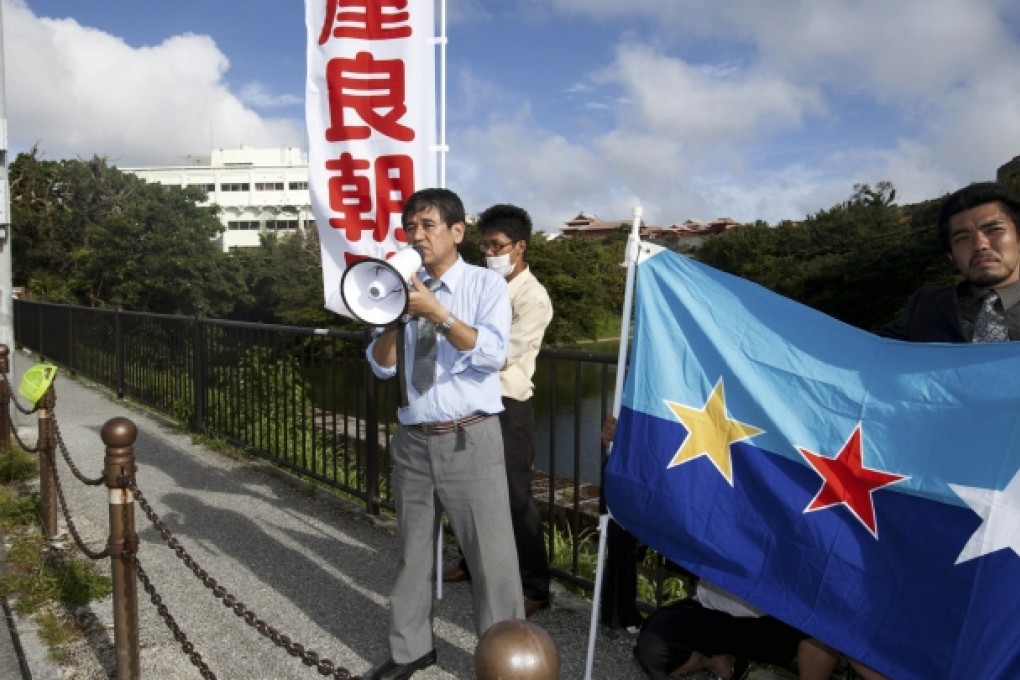Okinawans flirt with idea of independence
In a windowless room in a corner of a bustling market where stalls displayed severed pigs' heads and bolts of kimono silk, Okinawans gathered to learn about a political idea that until recently few had dared to take seriously: declaring their island chain's political independence from Japan.

In a windowless room in a corner of a bustling market where stalls displayed severed pigs' heads and bolts of kimono silk, Okinawans gathered to learn about a political idea that until recently few had dared to take seriously: declaring their island chain's political independence from Japan.
About two dozen people of all ages listened as speakers challenged the official view of Okinawa as inherently part of homogeneous Japan, arguing instead that Okinawans are a different ethnic group whose once-independent tropical islands were forcibly seized by Japan in 1879.
Then, to lighten the mood, the organisers showed Sayonara, Japan!, a comedy about a fictional Okinawan island that becomes its own little republic.
"Until now, you were mocked if you spoke of independence," said one speaker, Kobun Higa, 71, a retired journalist whose book on the history of the tiny independence movement has become a hot seller online. "But independence may be the only real way to free ourselves from the American bases."
Higa and other advocates admit that few islanders would actually seek independence for Okinawa, the southernmost Japanese island chain, which is home to 1.4 million residents and more than half of the 50,000 US troops and sailors based in Japan.
But discontent with the heavy US presence and a growing perception that the central government is ignoring Okinawans' pleas to reduce it have made an increasing number of islanders willing at least to flirt publicly with the idea of breaking apart in a way that local politicians and scholars say they have not seen in decades.
In May, a newly formed group led by Okinawan university professors held a symposium on independence that drew 250 people. A tiny political party that advocates separation from Japan through peaceful means has been revived after decades of dormancy, though its candidates have fared poorly in elections.